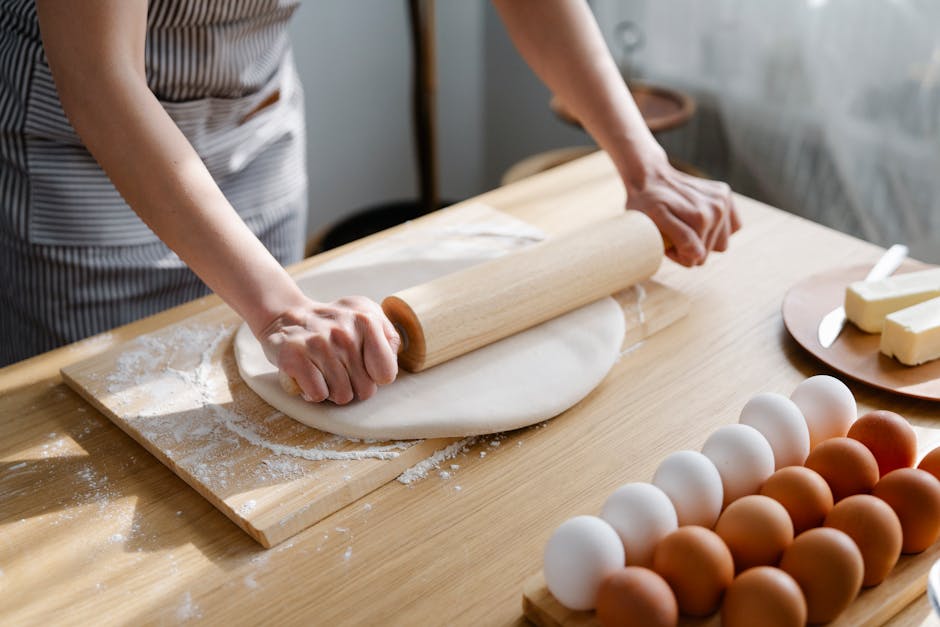Knives form the bedrock of any kitchen arsenal. A chef’s knife, with its broad blade and pointed tip, handles a wide array of tasks, from chopping vegetables to slicing proteins. Its versatility makes it a single-most important cutting tool. Supplementing the chef’s knife is a paring knife, ideal for intricate work like peeling fruits and vegetables or creating delicate garnishes. Finally, a serrated knife, with its saw-like edge, expertly cuts through crusty breads and tomatoes without crushing them. Investing in high-quality knives, preferably forged from durable stainless steel, and maintaining them with regular sharpening will dramatically improve your cooking experience and the longevity of the tools.
Beyond knives, cutting boards are crucial. Multiple boards, ideally one for meat and another for produce, help maintain hygiene and prevent cross-contamination. Hardwood boards, such as those made from maple or bamboo, are preferred for their durability and resistance to knife marks. Plastic boards are more affordable but can harbor bacteria more easily and show wear more quickly.
Next, consider essential cookware. A good set of pots and pans is invaluable. A medium-sized saucepan is versatile for sauces, soups, and side dishes. A larger stockpot proves indispensable for making stocks, soups, and larger batches of food. For frying and searing, a heavy-bottomed skillet, ideally cast iron or stainless steel, provides even heat distribution, crucial for achieving perfect results. Nonstick pans are convenient for eggs and delicate foods, but their lifespan is generally shorter than other options. When selecting cookware, paying attention to the material’s heat conductivity and overall durability is critical for long-term use.
Baking requires different tools. A set of mixing bowls, in various sizes, is fundamental for preparing batters, doughs, and sauces. Measuring cups and spoons ensure accuracy in baking, where precise measurements are crucial for consistent results. A sturdy baking sheet is essential for cookies, roasted vegetables, and sheet cakes. A 9×13 inch baking pan is a workhorse for casseroles, brownies, and countless other recipes. Silicone baking mats can be incredibly useful, providing easy cleanup and preventing sticking. A whisk is vital for incorporating air into batter and creating smooth sauces. While specialized baking equipment is readily available, these core items provide a solid foundation for most baking projects.
Beyond cookware and baking equipment, several smaller tools prove invaluable. A sturdy wooden spoon is indispensable for stirring and scraping, its gentle nature prevents scratching delicate surfaces. A spatula, both flexible and sturdy, is crucial for flipping pancakes, serving food, and scraping batter from bowls. A ladle is useful for serving soups and stews. Tongs provide a secure grip for flipping meats and handling hot food. A grater, for cheese, vegetables, and spices, is a frequently-used tool. A potato masher is essential for making mashed potatoes and other similar dishes. A can opener is self-explanatory, and a quality peeler makes quick work of vegetable preparation.
Utensils extend beyond the basics. Measuring tools are vital for accuracy in recipes, especially baking and pastry-making. Having both liquid and dry measuring cups and spoons ensures consistency. A food processor, or even a basic immersion blender, enhances efficiency for tasks such as chopping vegetables, making sauces, or blending soups. A food thermometer is invaluable for ensuring food is cooked to a safe internal temperature. This is especially important for poultry and meat to avoid foodborne illnesses. Silicone spatulas, owing to their heat resistance and flexibility, are perfect for scraping bowls and pans. Lastly, a good quality colander is necessary for draining pasta, vegetables, and rinsed grains.
Storage solutions deserve consideration. Airtight containers help maintain the freshness of leftovers and pantry staples. Proper storage significantly extends the shelf life of many food items. Investing in high-quality containers, preferably those made from durable and food-safe materials, improves kitchen organization and reduces food waste. A well-organized pantry not only keeps ingredients fresh but also streamlines meal preparation.
Cleaning supplies should also be considered an essential part of a functional kitchen. A collection of cloths and sponges, along with a good dish soap, is essential for maintaining a sanitary work environment. Keeping your kitchen clean ensures both hygiene and longevity of your equipment.
In conclusion, building a functional kitchen is about acquiring a thoughtful collection of tools, prioritized by versatility and durability. While trends in kitchen gadgets are constantly evolving, the core tools outlined above remain consistently essential. Focusing on quality over quantity, choosing tools suited to your cooking style and preferences, and maintaining your equipment will lead to a fulfilling and efficient culinary journey. The investment in these essential tools will pay dividends in years of cooking pleasure and culinary success.
